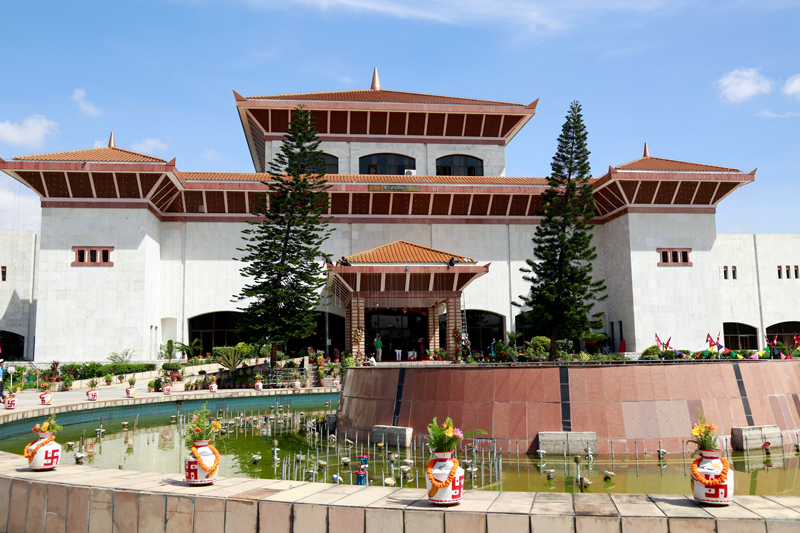Third-day deliberations on govt policies and programmes begin in parliament
KATHMANDU: Deliberations on the government’s policies and programmes, presented by President Bidya Devi Bhandari on May 21, have started in the House of Representatives for the third day, today.
While taking part in the deliberations, lawmaker Subash Chandra Nembang said the policies and programmes were excellent. He quoted a line from a Nepali song "phoolko aankhama phoolai sansara", indicating that the policies and programmes of the government are viewed differently by people with different perceptions. He added that the ruling side perceives them positively while the opposition views them adversely, and that was the beauty of democracy.
He further argued that it was time to lead the nation on the path of prosperity, meeting public needs and demands. He said that the constitution is a common document for all and it could be changed as per time and necessity, adding that it was promulgated by forging consensus among all sides.
Leader Nembang said that the Prime Minister had frequently urged the opposition for working together to meet the public aspiration of development, and therefore, consensus was of utmost significance.
On the other hand, Nepali Congress leader Bijaya Kumar Gachchhadar criticised the government's policies and programmes as failing to incorporate important aspects like physical infrastructure, social development, tourism, agriculture and water resources.
Nepal Communist Party lawmaker Dev Gurung said, the upcoming budget should include the policies and programmes, while pointing out that this was the basis for realising 'Prosperous Nepal, Happy Nepalis'.
Lawmaker from Rastriya Janata Party, Mahendra Raya Yadav, termed the policies and programmes as ambitious, while stressing political stability for development.
He said the policies and programmes were silent about providing relief to the families of martyrs and those killed in Tarai-Madhes movements. Stating the size of budget for Madhes is being decreased, he called for allocating budget by population size and geography.






